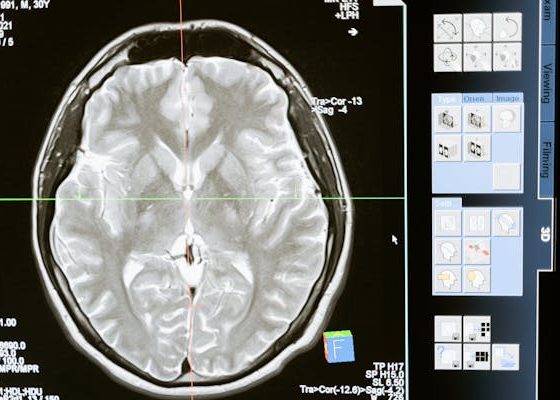Diabetes mellitus, commonly referred to as diabetes, is one of the most prevalent chronic conditions globally, affecting millions of individuals across all age groups. With over 463 million people diagnosed globally in 2020, this number is expected to rise to 700 million by 2045, according to the International Diabetes Federation. Characterized by the body’s inability to properly regulate blood glucose levels, diabetes can lead to severe complications, including cardiovascular disease, nerve damage, kidney failure, and vision loss. The search for better prevention, treatment, and, ultimately, a cure remains a top priority in medical research.

Over the past few years, substantial advancements have been made in understanding the pathophysiology of diabetes, identifying genetic and environmental triggers, and developing novel therapeutic interventions. In this article, we will dive deep into the latest research about diabetes, exploring promising discoveries in the fields of early diagnosis, innovative treatments, and prevention strategies.
1. The Role of Genetics and Precision Medicine in Diabetes
The latest research about diabetes increasingly focuses on the genetic factors that contribute to the disease. Scientists have identified several genes that are associated with both type 1 and type 2 diabetes, helping researchers understand the genetic predisposition and potential pathways for targeted therapies.
a. Genetic Insights in Type 1 Diabetes
Type 1 diabetes (T1D) is an autoimmune disease where the body’s immune system mistakenly attacks insulin-producing beta cells in the pancreas. Recent studies have shown that there are over 50 genetic loci associated with T1D susceptibility. The most prominent of these is the HLA (human leukocyte antigen) gene complex, which plays a crucial role in immune system regulation.
Recent research has also emphasized the importance of environmental triggers, such as viral infections and gut microbiota, that may influence the onset of the disease in genetically susceptible individuals. Ongoing clinical trials are exploring the possibility of using immunotherapy to alter the immune system’s response and prevent the destruction of beta cells in those at high risk.
b. Genetic Markers and Type 2 Diabetes
Type 2 diabetes (T2D), characterized by insulin resistance and impaired insulin secretion, is far more common than T1D. It has a strong genetic component, with recent genome-wide association studies (GWAS) identifying more than 400 genetic variants linked to an increased risk of T2D. Variants in genes like TCF7L2, KCNJ11, and PPARG have been found to influence insulin production and glucose metabolism.
Precision medicine, which tailors medical treatment to individual characteristics such as genetics, environment, and lifestyle, is becoming increasingly relevant in T2D. The application of genetic testing to predict diabetes risk is one of the most promising areas in this field. Researchers are now working on translating these genetic insights into practical clinical tools that will allow for more personalized treatment plans.
2. Advances in Insulin Delivery and Glucose Monitoring
The latest research about diabetes has led to several innovative technologies aimed at improving insulin delivery and glucose monitoring, significantly enhancing the quality of life for people with diabetes.
a. Closed-Loop Systems and Artificial Pancreas
Closed-loop insulin delivery systems, often referred to as the artificial pancreas, are a major breakthrough in diabetes management. These systems combine continuous glucose monitoring (CGM) devices with insulin pumps that automatically adjust insulin delivery based on real-time glucose readings. Studies have shown that these systems help people with T1D maintain more stable blood glucose levels, reducing the risk of hypoglycemia and hyperglycemia.
In 2020, the U.S. Food and Drug Administration (FDA) approved several closed-loop systems, and ongoing research is focusing on refining these technologies to make them more accessible, accurate, and user-friendly. The development of dual-hormone systems, which deliver both insulin and glucagon, holds promise for further optimizing glucose control.
b. Implantable Glucose Sensors
Continuous glucose monitoring has revolutionized diabetes care by allowing people to track their glucose levels in real time. The latest research about diabetes has driven the development of long-term, implantable glucose sensors that can remain in place for up to a year, reducing the need for frequent sensor replacements. These devices provide consistent, reliable data, and are being designed to improve accuracy and reduce user burden.
c. Smart Insulin and Injectable Devices
The concept of “smart insulin” is gaining traction, with researchers exploring insulin formulations that can automatically adjust their activity based on blood glucose levels. These insulins would become active when blood sugar rises and remain inactive when it is within the normal range, reducing the risk of hypoglycemia. While still in the early stages, this technology has the potential to revolutionize insulin therapy.
3. Targeting the Gut Microbiome in Diabetes Management
The gut microbiome, the collection of bacteria, viruses, fungi, and other microorganisms that live in the digestive tract, plays a vital role in regulating metabolism and immune function. The latest research about diabetes has revealed that changes in the gut microbiome may contribute to the development of both T1D and T2D.
a. Microbiome and Type 1 Diabetes
Several studies have shown that children who go on to develop T1D have a distinct gut microbiome composition compared to those who do not. Specifically, a reduction in microbial diversity and a decrease in beneficial bacteria, such as those from the Bifidobacterium genus, have been linked to T1D onset. Ongoing research is exploring the potential of probiotics, prebiotics, and fecal microbiota transplantation as interventions to restore a healthy microbiome and delay or prevent T1D.
b. Gut Microbiota and Type 2 Diabetes
In T2D, the gut microbiota also appears to play a critical role. Alterations in gut bacteria may contribute to insulin resistance and chronic inflammation, both key components of T2D. Researchers are investigating whether modifying the gut microbiome through diet, probiotics, or medications can improve insulin sensitivity and glycemic control.
Recent clinical trials have demonstrated that individuals with T2D who were given probiotics experienced modest improvements in glucose control. Further studies are needed to determine which bacterial strains are most effective and how they can be incorporated into diabetes management.
4. Emerging Therapies for Type 2 Diabetes
The latest research about diabetes has led to the development of several novel therapies for T2D, some of which target previously unexplored pathways.
a. SGLT2 Inhibitors
Sodium-glucose cotransporter-2 (SGLT2) inhibitors are a relatively new class of drugs that work by preventing the kidneys from reabsorbing glucose, allowing excess glucose to be excreted in urine. In addition to lowering blood glucose levels, SGLT2 inhibitors have been shown to reduce the risk of heart failure and slow the progression of kidney disease in individuals with T2D.
Recent studies have also found that these medications may benefit individuals with T1D when used in combination with insulin, although the risk of ketoacidosis remains a concern. Ongoing research is exploring ways to mitigate this risk while harnessing the potential benefits of SGLT2 inhibitors for a broader population.
b. GLP-1 Receptor Agonists
Glucagon-like peptide-1 (GLP-1) receptor agonists are another class of medications that have gained attention for their ability to improve glucose control, promote weight loss, and reduce cardiovascular risk in people with T2D. These drugs mimic the action of GLP-1, a hormone that stimulates insulin release and suppresses appetite.
In 2021, the FDA approved the first once-weekly injectable GLP-1 receptor agonist, semaglutide, for weight management in individuals with obesity. This approval highlights the growing recognition of the importance of weight management in diabetes care, and future research will likely focus on optimizing the use of these medications in various populations.
c. Dual GLP-1/GIP Receptor Agonists
The latest research about diabetes has led to the development of dual GLP-1/GIP receptor agonists, which target both the GLP-1 and glucose-dependent insulinotropic polypeptide (GIP) receptors. These drugs have shown promising results in early clinical trials, with significant improvements in glycemic control and weight loss compared to existing therapies. The first of these dual agonists, tirzepatide, was approved by the FDA in 2022, and ongoing studies are exploring its long-term safety and efficacy.
5. Immunotherapy and Beta Cell Preservation in Type 1 Diabetes
One of the most exciting areas of research in T1D is the development of immunotherapies that aim to preserve or restore insulin-producing beta cells in the pancreas. The latest research about diabetes has highlighted several promising strategies for modulating the immune system to prevent or slow the progression of T1D.
a. Teplizumab and Beta Cell Preservation
Teplizumab, a monoclonal antibody that targets the CD3 receptor on T cells, has shown promise in delaying the onset of T1D in individuals at high risk. In a landmark study published in 2019, researchers found that a two-week course of teplizumab delayed the development of T1D by an average of two years in individuals with a family history of the disease. This groundbreaking discovery has led to further clinical trials to assess the long-term benefits of teplizumab and other similar therapies.
b. Stem Cell-Based Therapies
Stem cell therapy is another promising area of research in T1D. Researchers are exploring the potential of using pluripotent stem cells to generate insulin-producing beta cells that can be transplanted into individuals with T1D. In 2021, a biotech company announced the first successful implantation of stem cell-derived beta cells in a patient, marking a significant milestone in diabetes research.
While still in the experimental stages, this approach holds the potential to offer a functional cure for T1D by restoring the body’s ability to produce insulin. Ongoing research is focused on overcoming the challenges of immune rejection and ensuring the long-term viability of the transplanted cells.
6. Diabetes Prevention: Lifestyle and Behavioral Interventions
While much of the latest research about diabetes focuses on treatment, preventing the disease before it develops is equally critical. Lifestyle interventions, such as diet, exercise, and weight management, remain the cornerstone of diabetes prevention, particularly for T2D.
a. Intermittent Fasting and Time-Restricted Eating
Recent studies have explored the potential benefits of intermittent fasting and time-restricted eating in diabetes prevention. These dietary patterns, which involve limiting food intake to specific windows of time, have been shown to improve insulin sensitivity and reduce body weight, both of which are key factors in preventing T2D. However, more research is needed to determine the long-term effects of these approaches and to identify the most effective strategies for different populations.
b. Exercise and Muscle Mass Preservation
Physical activity is well-known for its role in preventing diabetes, but the latest research about diabetes has revealed that maintaining muscle mass may be particularly important. Studies have shown that individuals with higher muscle mass have better insulin sensitivity and a lower risk of developing T2D. Resistance training and strength-building exercises are now being emphasized as critical components of diabetes prevention programs.
7. Artificial Intelligence and Big Data in Diabetes Research
Artificial intelligence (AI) and big data analytics are playing an increasingly important role in diabetes research. The ability to analyze large datasets allows researchers to identify patterns and correlations that may not be apparent through traditional research methods.
a. Predictive Models for Diabetes Risk
AI-driven algorithms are being used to develop predictive models that can assess an individual’s risk of developing diabetes based on factors such as genetics, lifestyle, and medical history. These models have the potential to revolutionize diabetes prevention by identifying high-risk individuals early and enabling targeted interventions.
b. Personalized Treatment Plans
The latest research about diabetes is also leveraging AI to create personalized treatment plans. By analyzing data from continuous glucose monitors, insulin pumps, and other devices, AI algorithms can identify trends and recommend adjustments to insulin doses, dietary intake, and physical activity. This approach holds promise for improving glycemic control and reducing the risk of complications.
Conclusion
The latest research about diabetes has provided valuable insights into the genetic, environmental, and lifestyle factors that contribute to the disease. Advances in precision medicine, glucose monitoring technology, and therapeutic interventions are offering new hope for individuals with both T1D and T2D. Furthermore, emerging fields such as immunotherapy, gut microbiome research, and AI-driven analytics are pushing the boundaries of diabetes care and prevention.
As the global burden of diabetes continues to rise, it is clear that ongoing research will play a crucial role in shaping the future of diabetes management. The breakthroughs highlighted in this article offer a glimpse of the exciting possibilities that lie ahead in the fight against diabetes, bringing us closer to the goal of a world without diabetes.







